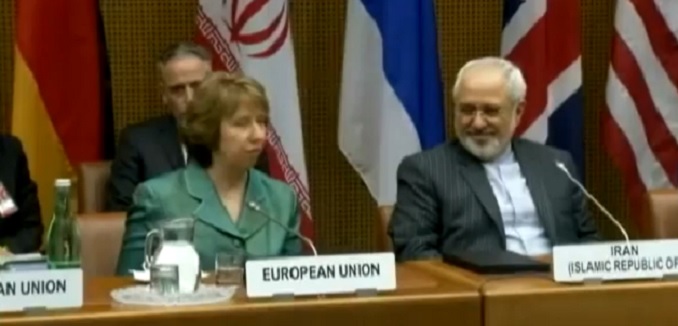The Associated Press yesterday quoted a European Union official describing renewed talks between Iran and the P5+1 global powers as getting into the “nitty-gritty,” after weeks in which top Iranian officials had repeatedly underscored their red lines against dismantling their uranium infrastructure, downgrading their plutonium-producing Arak reactor, or limiting their ballistic missile program.
Obama administration figures had for their part repeatedly emphasized that any comprehensive deal with Iran would require the Islamic Republic to make concessions across all three dimensions, and Reuters reported over the weekend that Iran’s stance on its Arak plutonium complex was again emerging as a key sticking point.
Most of Iran’s 290 parliamentarians came out strongly on Sunday against putting any limits on the Arak heavy water reactor, which remains under construction. “They (negotiators) should not accept any bans on the development of the Arak heavy water complex and the fact of enrichment,” said a statement signed by 220 MPs and carried by the semi-official Mehr news agency.
Meanwhile bipartisan groups of lawmakers from both the Senate and House sent letters to President Barack Obama yesterday outlining the contours of what an acceptable deal with Iran must entail, and committing to what The Hill described as “serious consequences for Iran if it fails to reach a nuclear agreement with the United States.”
The senators said any final agreement should state that Iran has no inherent right to nuclear enrichment while requiring the country to dismantle its nuclear program, give up its heavy water reactor and submit to a long-term system of inspections, among other principles. “We believe that Iran has no inherent right to enrichment under the Nuclear Non-Proliferation Treaty,” the first principle said.
The Hill also pointedly noted that the 83 Senators who signed the letter are “well above the two-thirds required to override a presidential veto.”
[Photo: FRANCE 24 English / YouTube]




